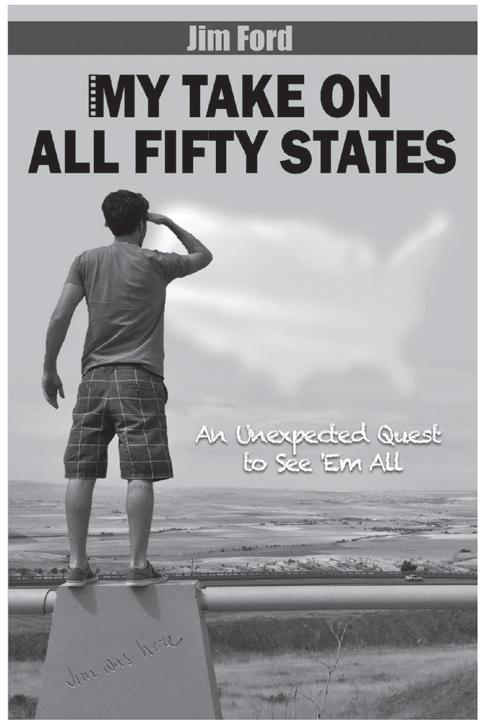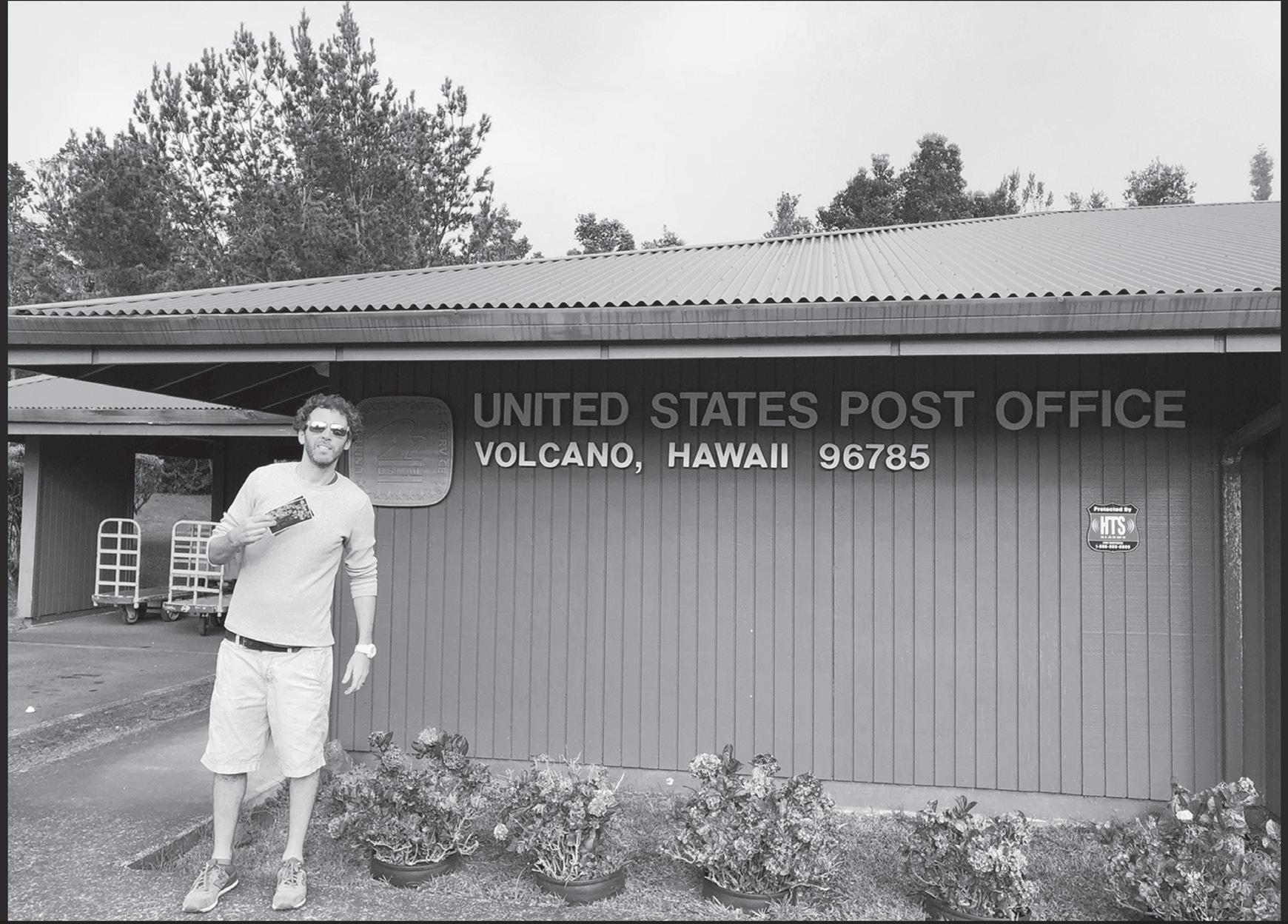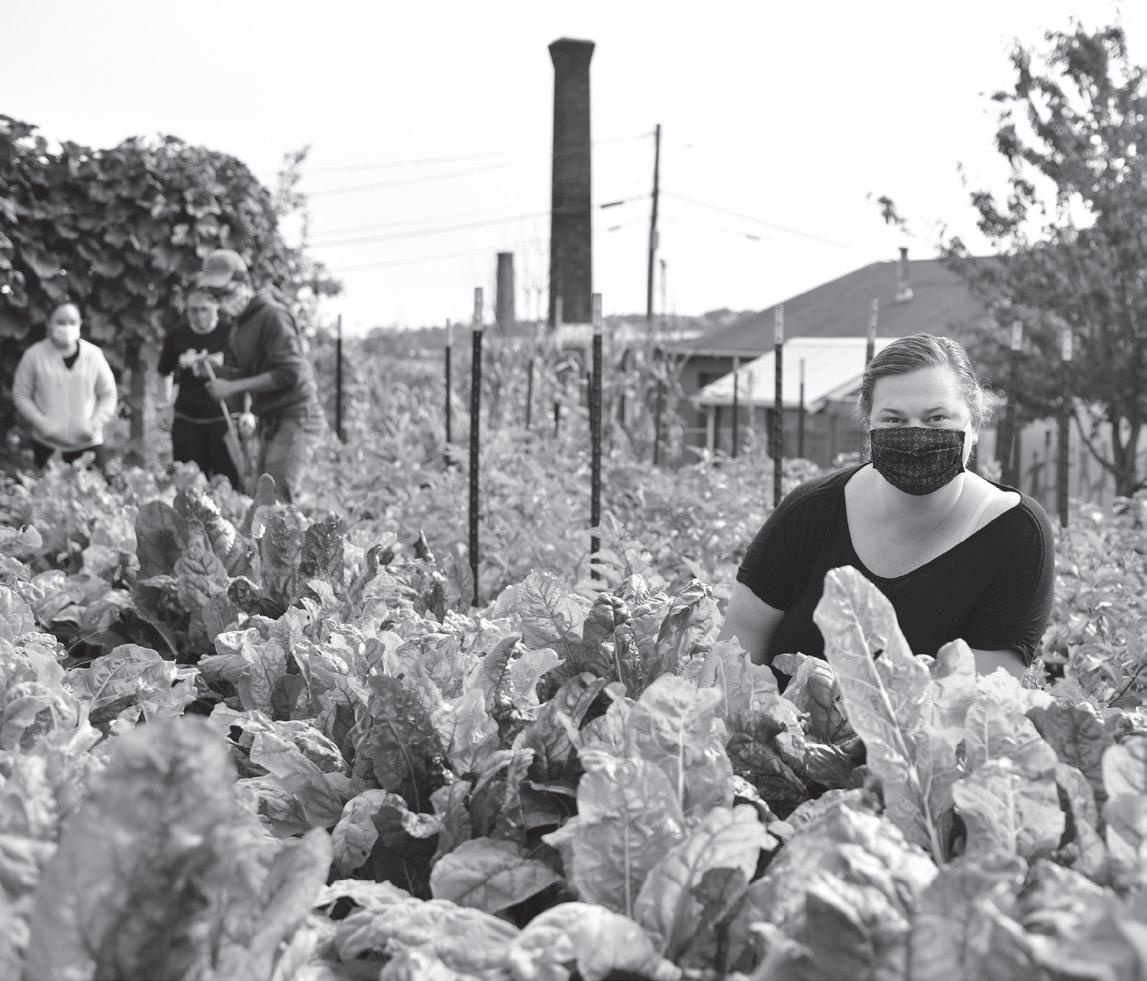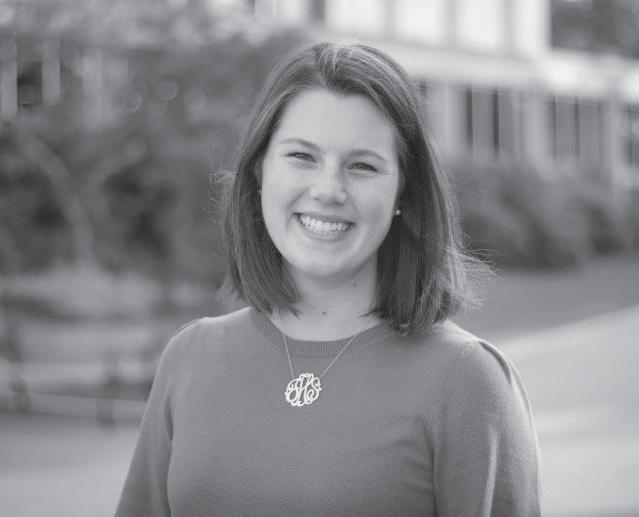
20 minute read
Featured
West Boylston author hits all 50 states in new book
Advertisement
RICHARD DUCKETT
In Jim Ford’s amusing new short film “Small World,” two American tourists (played by Ford and Hannah Sloat) in a far away foreign land realize they are not just both from New England, but, as the conversation in a bar intensifies, Central Massachusetts, near Worcester. Shrewsbury, to be precise, and even from the same street in Shrewsbury.
Alas, the conversation doesn’t end well.
But Ford, who grew up in West Boylston and has had a successful career as an actor and a stuntman, evidently fared better in his travels in the United States. He has visited every state, as he relates in his book “My Take On All Fifty States: An Unexpected Quest to See ‘Em All,” published earlier this month.
One of the rules for qualifying as a state visited, Ford decided, was that he have at least one conversation with someone in the state. Airports didn’t count. All the 50-plus conversations went well.
The book is part memoir reflecting on Ford’s more than 200 combined credits as actor/stuntman in films, TV shows and commercials and working with actors such as Edward Norton, Colin Farrell, Christopher Walken, Gerard Butler, Tom Cruise, Cameron Diaz, Adam Sandler and Kevin James.
However, “I didn’t want to say ‘Oh, I worked on this movie ...’” What had struck Ford early in his career was that his work, unexpectedly, was taking him to a lot of the 50 states.
“I thought I’d be working on a sound stage in Burbank, but I was filming in a myriad of interesting states and locations,” Ford said. “Deserts in New Mexico, jungles in Puerto Rico, bayous of New Orleans. This is where I was working and I didn’t see that coming. I was just constantly traveling. Some years I’d work in 14 or 15 states.”
It got to the point where Ford realized there were only a handful of states he hadn’t visited to make it to the total of 50. He decided to take matters into his own hands.
“I was just, ‘I have to. I have to check the remaining states.’”
A call one time to his now wife, Danielle, went along the lines of “I’m going to Little Rock for the weekend
… Come on, I’ve only got four or five states to go.” When his parents called on another occasion and asked what he was doing, Ford replied, “I’m driving in West Virginia.”
Some of the remaining states were the ones that people don’t usually go to unless they have to, he said, like Arkansas and West Virginia. But after a trip to Alabama, he only had two states left, Alaska and Hawaii.
Alaska proved to be his favorite state. “Less traveled. More exciting.” He went on hikes and almost got charged by a moose. Juneau is the only U.S. state capital not connected by roads to the rest of the state as it is surrounded by mountains and water, Ford noted. “It feels like another world.”
Hawai’i Volcanoes National Park made for an interesting hike when he was in Hawaii. “There were active steam vents and sink holes.” One of the volcanoes erupted a few days after his visit, and part of the park had to be closed down.
“I had some awesome adventures, but it wasn’t my favorite state,” Ford said of Hawaii. “It’s a pain in the … to get to. We were traveling just forever to get there. And it’s expensive. Seventy-five dollars for breakfast, and then not a fancy breakfast.”
Speaking of food, his best culinary experience was crawfish jambalaya in Shreveport, Louisiana. “We don’t eat too exciting in West Boylston,” Ford said.
A film shoot in Puerto Rico proved interesting as it took Ford to jungles and shanty towns that tourists wouldn’t usually see.
The tourist mecca Miami was rather disappointing in Ford’s view. “I just didn’t get what all the hoopla is about. Miami was all construction and gratuities.” He was told that gratuities get added on to bills because Miami receives so many European tourists who aren’t used to tipping.
Among the 48 contiguous states, Montana most impressed Ford. “It was gorgeous. Montana is just so expansive,” he said.
Besides Ford’s “rules” that airports don’t count and he must have at least one conversation with someone from every state, he also would mail a postcard from each state. “I would find a post office. That will bring you away from the tourist areas,” he said.
“I hope people are entertained by it,” he said of “My Take On All Fifty States.” “I hope people are inspired to


Author Jim Ford in Helena, Montana, (above) and at the post office in Hawaii. The actor and stuntman’s book about his travels came out earlier this month.
get out of their comfort zone.”
SUBMITTED PHOTOS
Ford certainly can’t be accused of standing still.
“It all started in Worcester,” he said.
Ford has previously recalled that he jumped off the bridge over Lake Quinsigamond as part of stunt while trying to make a movie with some friends. The problem was that an outside observer thought there was no clowning or stunt or filming going on - but a suicide. The police were called. Ford had jumped into some very shallow water littered with shopping carts. The incident made the newspaper the next day. His father was upset.
At St. John’s High School in Shrewsbury, Ford developed an interest in acting after taking a theater class and trying out for a school production of “Romeo and Juliet” and getting cast as Romeo. After St. John’s, Ford earned a BFA in acting in the prestigious drama program of the Hartt School at the University of Hartford. One of his teachers there, a “fight master” trained in the art of staging fights and stunts, recognized
Into the Woods
Justin Raphaelson plans to hike 11 forested trails in 24 hours
VEER MUDAMBI
Justin Raphaelson plans to hike 11 forested trails of about 30 miles through the Greater Worcester Land Trust’s properties. In 24 hours.
Raphaelson, 29, will be taking this to the extreme as an ultramarathon. “Going to be running the whole set,” he said, “and should take roughly six to eight hours.”
Between Oct. 9 and 16, GWLT,

which oversees 2,788 acres, will be holding its first annual “Hike Week” to encourage Worcester residents to hike as many trails as they can on its lands. Participants will be supported with pledges that will go toward trail maintenance.
GWLT, a small nonprofit organization created to steward critical open space parcels in Greater Worcester, is run by a board of trustees, volunteers and a small office staff.
The event developed out of the existing Hike Worcester Program, in which hikers get a patch for completing 10 out of 11 trails in Worcester. An avid hiker and outdoorsman, Raphaelson came up with the idea — modeled after similar programs in New Hampshire and Vermont. The next step was brainstorming ideas to encourage people to explore the properties — like a designated hike week to raise awareness of conservation.
“The goal is to get people outside to see and understand what it is that we’re trying to protect,” said Raphaelson. The youngest on the board by a long shot, he also suspects the addition of the millennial perspective helped drive this event. “The changing of the guard is happening,” he observed.
Though there is some debate over what exactly constitutes a millennial, also known as NextGen, the general consensus is the demographic that reached young adulthood in the 2000s. This places them between the ages of 18-35, and are set to be the largest generation in the workforce.
Despite this, many nonprofits often overlook millennials, as they are less likely to be a reliable source of donations. “A lot of volunteers with the organization are retired people or career people who volunteer on the weekends,” said Rebecca Bergmann, the other millennial board member at GWLT.
They both stress that one does not need to have a career in conservation to be involved in an environmental nonprofit. “There are things you can do to be on such a board that aren’t necessarily conservation related. You can be interested in it but there is other expertise that is needed and can be applied to a board — law, business, public relations,” Bergmann said.
She sympathizes with millennials who may feel uncertain about how they can contribute. “You see all these people with more experience and connections, but just being passionate about what you’re interested in and learning what you can about the issues will give you the confidence to step up to the table and say, ‘I want to be a part of this organization/this effort.’”
While individual donations may be smaller, sheer numbers could make up for it. It’s all about the angle of approach, said Bergmann. “Even if it is just five dollars.”
Young people are more likely to contribute, and not just monetarily, to causes in which they have a personal stake. That’s where the Hike Worcester Challenge comes in — making green spaces stewarded by the GWLT a tangible rather than abstract presence in people’s lives.
The obvious benefits of urban green spaces are they provide recreation, relaxation, wildlife viewing. But they also reduce urban temperatures, improve air quality, reduce noise pollutants and increase property values. “You don’t notice those right away,” said Bergmann, “but it’s part of conservation for ages — the value of nature.”
“Before I became a parent, I thought about nature in terms of how I enjoyed it, but now I just know so much more about how much nature is important for kids and getting out there,” she said.
She says GWLT can help young families can see how important open spaces are, especially in urban areas.
“We’re hoping that people will go out to hike, see these great places in Worcester and be excited about an organization that is preserving them,” Bergmann said.
Hike Week can also offer a window into what the city has to offer to new and veteran hikers alike.
“Just getting outside, out of your comfort zone, off the streets and into the trails, is very fulfilling when you don’t expect to have trails like this,” said Raphaelson. “I hope the run can raise awareness that you don’t have to go up to Maine or Vermont to find those wild areas.”
Liberty and food justice for all
The pursuit of food equity has never been more important - but it’s also never been harder
VEER MUDAMBI
It’s easy to see how the pandemic has changed our outward lives. In Worcester — offices are closed, schools are closed, and no school buses. The number of people struggling with losing jobs and food insecurity? Those are harder to see.
Food insecurity is traditionally cast as a Third World or “poor people” problem by those not experiencing it, but is a manifold problem fed by systemic conditions such as poverty, income inequity, healthcare inequity, systemic racism and homelessness. Food insecurity doesn’t mean there’s no food at all, but may be no healthy options, leading to a rise in obesity; all poor people are not food insecure, and not all food insecure people are poor.
The pandemic acted as a force multiplier for these challenges. Feeding America, the nation’s largest hunger relief organization, projects for Worcester County an overall food insecurity rate of 13.1% and a child food insecurity rate of 18.1%.
There are 20 to 25 food pantries in Worcester and all of them are seeing increased demand as well as greater need for volunteers and donations. More than 82% of U.S. food banks are seeing an average increase of 50% more visitors and the number of food insecure Americans could be 54 million by year’s end — 17 million more than were food insecure before the pandemic.
Bill Riley, manager at St. John’s Food Pantry and Soup Kitchen, says that they serve about 300 people a day. Riley, who is a COVID-19 survivor himself, has taken note of many new faces, not just at St. John’s but at food pantries around the city. People are traveling farther in search of resources, so there’s “no doubt about it that the pandemic has increased food insecurity,”
The Regional Environmental Council, a grassroots food justice program focused on providing food to Worcester’s most food insecure communities, aims to alleviate this condition. While in emergency response mode since March, with the primary goal being to get food to people as quickly as possible, the group has fought for food justice for over 15 years.
“When I talk about food justice, I like to define it as the right of all people regardless of identity, race, income, location, to access good food,” said Grace Sliwoski, “produced in a way that’s ethical for people and the planet, affordable, culturally relevant and accessible in a dignified way.”
It’s a broad definition to encapsulate a response to a systemic problem. Their multi-tiered approach is meant to permeate all levels of the community to ease the inevitable food shortages as the shutdown and unemployment wears on. Sliwoski also observed that the need for food resources has increased dramatically and remains high.
The REC’s work goes a step beyond feeding people, even though that’s certainly a big part of it. The larger goal is to address food inequity and the root causes of hunger on multiple levels: •The UGROW program fosters community and school gardens program so members of the community have resources to grow their own food in Worcester •Community farmers markets, which ensure that local healthy food is easier to access •The youth development program, YouthGROW, in Worcester and Central Mass. to create a space for young people to explore food systems in a social justice framework.
It’s not only kids trying to develop their green thumb — there has been a clear rise in interest from adults in growing their own foods. One of REC’s fundraising events, an annual plant sale, was changed to an online and curbside pickup model this year. “We made it more about getting plants to people who needed them,” explained Slikowski. Seeds were priced on a sliding scale to make them more affordable, and they sold more plants this year than before and are considering keeping the sliding scale even after a return to normalcy.
Government response to the pandemic has been an issue, and oftentimes the problem is adjusting existing programs to the current circumstances. Food justice groups step in to fill the gap, in what Slikowski referred to as food equity.
The Supplemental Nutrition Assistance Program and Healthy Incentives Program are good examples. In theory, the program seems fine — HIP users get back one dollar for every dollar of their SNAP balance that they use on local produce from HIP-authorized farms or vendors. However, payment for SNAP purchases must be made at the time of the transaction, meaning low-income families were unable to use the grocery delivery services that have become increasingly necessary during the pandemic. If participating in SNAP or HIP requires users to place themselves at greater risk, that becomes a food injustice and it needs to be addressed.
To that end, REC takes the role of middlemen, delivering produce as well as opening multiple mobile markets in Worcester, currently accounting for four of the city’s seven HIP vendors. The idea is to come up with creative solutions in the short term, said Slikowski. “Since we can’t change how SNAP works immediately, we can still make sure that homebound people can get food delivered and use their HIP dollars.” They also deliver produce to the Worcester Regional Food Hub, where contactless methods of pickup are in practice.
It’s not only a question of sustenance — a tenet of the food justice movement is “culturally appropriate food” in addition to healthy and sustainably sourced. The psychological benefit of familiar cuisine cannot be underestimated. Worcester boasts a diverse food scene through its restaurants, and groups like the REC work to have that reflected agriculturally as well. Farmers markets always offer a variety of produce beyond the traditional New England fare — “immigrants brought other crops and seeds with them, and we want to reflect that diversity,” said Slikowski.


From top: Grace Sliwoski, REC director of programs, in rows of Swiss chard at the farm on Oread Street; a United Way volunteer from Luk Inc. harvests kale; farm manager Tom Trepanier, center, directs United Way volunteers from Luk Inc. during a harvest.

Ending the cycle
Students wage public campaign for a private need
KATHERINE HAMILTON “ T oilet paper is provided in all public bathrooms and it’s an essential aspect of the restroom experience, so why are we expected to have quarters on us if we get our period and have nothing to use?” asked College of the Holy Cross senior Janna Hearty, who currently serves as the school’s student council Director of Health and Safety. “You’re not choosing to be on your period.”
Hearty is just one of many Worcester college students speaking out about the need for free and accessible menstrual products. In fall 2019, she spearheaded a two-year pilot program to provide free pads and tampons in bathrooms across Holy Cross campus. Since then, students at Clark University and WPI also have launched pilot programs as part of a nationwide effort at colleges and universities known as menstrual equity.
Since classes were moved online
U N E X P E CT E D Q U E S T CONTINUED FROM PAGE 4
Ford’s dexterity and potential stunt ability and recommended him to the summer program of the International Stunt School in Seattle.
After graduating from the Hartt School, Ford auditioned for anything he could get. In 2006 he was hired as a stunt/body double for star Edward Norton in the crime thriller movie “Pride and Glory.” His travels to all the states would begin in earnest.

due to the COVID-19 outbreak, the pilot programs were put on hold as students no longer used campus bathrooms. However, those leading the initiatives planned to resume their efforts this fall as students returned.
During the lockdown in Massachusetts, Clark’s student council also provided some free menstrual products in their non-perishable food pantry, which was open to Clark students still living on or near campus.
At WPI, the student group Period. began its efforts to distribute menstrual products last year. “We really wanted this project because there are so many times where you’re caught in between classes or in class, and your period started suddenly, and you can’t really run home to grab a product,” explained Period. Vice President Alexandria Lehman.
For college students, there are a number of barriers that make pads and tampons harder to access. According to a poll commissioned last fall by
He is still on the move in that he and his wife and their young son, Zander, recently relocated from New Jersey to Rockland County in New York state. “It’s my 29th move since college.”
He gets back to Worcester/West Boylston to visit friends and family, including his parents, John (a retired captain in the Worcester Fire Department) and Linda (a retired nurse practitioner).
In January, Ford and his fellow cast members received a Screen Actors Guild Nomination for Outstanding feminine products provider INTIMA, the average menstruater spends almost $14 a month on menstrual products, which, for many low-income students, is an unaffordable expense.
“We think of college students as economically privileged and, therefore, can’t imagine there should be initiatives for menstrual equity on college campuses,” said Cinzia PicaSmith, a professor in Assumption College’s women’s studies department.
According to Pica-Smith, over two-million college students nationwide are eligible for Supplemental Nutrition Assistance Program, which provides food coupons to low-income households. “You can imagine, then, that expensive menstrual products become cost-prohibitive for many college students struggling to make ends meet,” she explained.
Along with financial obstacles, some students with disabilities or other accessibility issues may struggle to physically get to a store Action performance by a Stunt Ensemble in a Motion Picture for their work on the film “The Irishman.”
Since then the landscape has changed.
“With the pandemic, some of the big film and TV stuff had completely shut down. They tried to start back up but I guess some people tested positive,” Ford said. In Manhattan for a meeting recently, there were “zero tourists,” he noted.
“It’s definitely a different time, but I’m staying busy.” to buy supplies. “For me, it’s easy to walk into Target and buy products,” said Hearty. “That’s not the case for everyone. We need to eliminate those barriers,” she says, noting that free products on campus will make a difference.
Holy Cross’s pilot program hit the two-year mark at the end of the spring semester, and Hearty said she hopes it will become an established part of the school’s budget. The project was dubbed “Cura Personalis. Period.,” rooted in the Latin term for “care of the entire person,” which is a common phrase within Jesuit education and has been used by other Jesuit colleges to leverage menstrual equity initiatives.
“We’re a community that cares for one another and this is part of that caring,” said Hearty.
Activists like Lehman and Hearty also have called attention to gender identity, emphasizing that not all people who menstruate use the women’s restroom. This is not a con
Ford has been writing and producing his own short films, including “Small World” and also “A Boat Time,” which was filmed entirely on open water. “Everyone was available for this,” he said of assembling a crew for “A Boat Time.” He plans to submit the film to festivals.
He had spent three years writing “My Take On All Fifty States” and then “it took me about two years to get it published. It was a long process.” The book is published by Atmosphere Press and is curcept that everyone is familiar and comfortable with yet, according to Ivette Mendoza, the student council treasurer and head of the Menstrual Equity Initiative at Clark.
Her initiative, which began February 2020, includes women’s and men’s bathrooms in two residential halls and the University Center. It gained the support of over 1,700 students who signed a petition last fall.
From left, Janna Harty from Holy Cross; Ivette Mendoza of Clark University; Alex Lehman from WPI.


SUBMITTED PHOTOS
As the push for menstrual equity spreads across Worcester campuses, it is also climbing into the consciousness of legislators. Bill H.1959/S.1274 aims to increase access to menstrual products in prisons, homeless shelters and public schools, and is currently waiting in the House to be heard.
“To see a bill that’s fairly new with such momentum behind it, I’m cautiously optimistic that we can pass this in sessions,” said state Sen. James Eldridge, who cosponsored the bill. “It’s really been a national movement.”
rently available at Amazon, Barnes & Noble, Books a Million, Walmart and many bookstores in and around Worcester.
With his unexpected quest ending successfully, Ford said, “I got the traveling out of my system. I hang out with the little guy (Zander).”
All his travels were pre-pandemic, and it might be more difficult to pull off such a feat now.
“I probably could do a little road trip, but I think it would be hard to get to Alaska or Hawaii,” Ford said.









